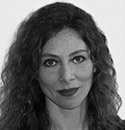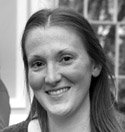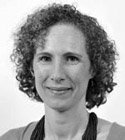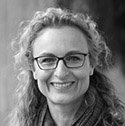'It really changed my life completely': Thirty years of British Academy Postdoctoral Fellowships
- Date
- 16 Jun 2017
Published in British Academy Review, No. 30 (Summer 2017).
The print version of this article can be downloaded as a PDF file.
In 1983 the British Academy was involved in assessing applications under the University Grants Committee’s initiative to introduce more university posts at a junior level (the ‘New Blood’ scheme). That UGC scheme lasted for three years, 1983–85. In October 1985 the President of the British Academy, Sir Randolph Quirk, wrote to the Secretary of State for Education and Science, Sir Keith Joseph, to request funding for a programme of Postdoctoral Fellowships in the humanities and social sciences.
Running since the academic year 1986–87 and with over 1000 awards made to date, the British Academy Postdoctoral Fellowship scheme is now the Academy’s flagship funding programme for early career researchers, and is one of the most prestigious and sought-after of its type anywhere in the world.
The awards encourage the completion of a significant piece of publishable research to help to develop each Fellow’s curriculum vitae and improve their prospects of obtaining a permanent post by the end of the Fellowship and build a successful academic career.
And the scheme has been extraordinarily effective in enabling such successful academic careers to be built: 70 per cent of former British Academy Postdoctoral Fellows now hold permanent academic posts, and one in five are now professors.
Beside the numbers, there are a host of individual stories of academic lives that have blossomed. Here are just five.

Helena Sanson
Helena Sanson recalls how she discovered that she had been awarded a Postdoctoral Fellowship in 2003.
I was at a moment in my life when I thought that I was not going to have an academic career. It was a little bit more than a year after my viva. I was working for a company that managed European social funds projects, but I very much wanted to do research again. I remember that, when I got home in the evening, I saw a letter from the British Academy and thought, ‘This is going to be a rejection. I am not going to open it’. So I just left it next to the phone and went to have dinner. When I walked past the telephone again, I thought, ‘I will just check the letter and read it’, so I opened it. I saw the words ‘We are delighted to inform you…’ But it was only when I read it twice that I realised that ‘We are delighted’ means ‘You got it!’ I called my parents straightaway to let them know. I was very happy. It really changed my life completely.
Dr Sanson is now a Reader in Italian Language, Literature and Culture at the University of Cambridge. In 2011, the British Academy published her monograph on ‘Women, Language and Grammar in Italy, 1500–1900’; and in 2016 she co-convened a British Academy Conference on women in the history of linguistics. ‘So I have a particular attachment to the British Academy for all the support that I have been given over the years.’

Bonny Hartley
Bonny Hartley, now finishing her first year as a Postdoctoral Fellow, reinforces that perception of the transformative power of the award.
I have thoroughly enjoyed my experience so far. I feel very privileged to be part of such a prestigious scheme, and it has meant a great deal to me to be able to return to the area of research which I am most passionate about. After my PhD, I worked on several fixed-term contracts, and this can often feel like you are moving sideways rather than forward. I am thrilled that, since being awarded a British Academy Postdoctoral Fellowship, I can work on a significant piece of research, develop vital skills, grow my networks, and get experience teaching at University level – all perfect preparation for a permanent academic position at an excellent institution. I have also been impressed by the excellent training workshops and events laid on by the Academy which not only contribute to giving Postdoctoral Fellows a real edge, but also reinforce the feeling that you are part of a supportive community. One final point: I am expecting my first child in late August, and the British Academy has been very supportive of my plans for maternity leave and flexible working – something which I am extremely grateful for.
Dr Hartley holds her British Academy Postdoctoral Fellowship in the Department of Psychology, Social Work & Counselling at the University of Greenwich. Her research project is ‘Masculinity norms and boys’ academic underachievement’.

Mark Harris
The opportunity provided by a three-year Postdoctoral Fellowship to conduct a major piece of research is particularly precious, as Mark Harris explains.
A valuable experience of my Postdoctoral Fellowship [awarded in 1996] was being able to explore and experiment with new ideas. I was fortunate to be at Manchester in a department buzzing with innovative approaches to anthropology. These influences convinced me to follow an intellectual thread to its conclusion, rather than keeping within disciplinary boundaries. The British Academy supported the publication of a monograph that arose from those workings [Life on the Amazon, published 2000]. Since the Postdoctoral Fellowship I have extended my anthropological work on Brazil to include historical documentation in diverse archives in Europe and South and North America.I carried out this research because of my earlier confidence and conviction. I am grateful to the British Academy for starting my career, and helping advance it – most recently with British Academy/ Leverhulme Senior Research Fellowship.
Dr Harris is now Reader in Social Anthropology at the University of St Andrews. An article about his Senior Research Fellowship project appears elsewhere in this issue.

Jessie Hohmann
In January 2013, Jessie Hohmann published an article in the British Academy Review on ‘The true radicalism of the right to housing’, arising from her recently completed Postdoctoral Fellowship (2009–2012). Here she reveals how that research work got picked up more widely.
What really bothered me about the right to housing when I started doing my research was that people laughed at me and told me it was not a real human right. So, in the book that arose from my Postdoctoral Fellowship, The Right to Housing: Law, Concepts, Possibilities (2013), I tried to provide some justification by looking at space, privacy and identity – the really important things that housing protects. As one consequence of that, in 2015 I was approached by Just Fair, a social-rights charity. Because the UK has signed up to the Convention on Economic, Social and Cultural Rights, every four years the UK has to report to the UN Committee on Economic, Social and Cultural Rights on how well it is protecting those rights. The UK government had sent in a report to the Committee that had just one line on housing: ‘Homelessness acceptances have fallen.’ What that means is that the legislation had been tightened, so fewer people were being recognised as homeless, and so fewer people were being protected. The charity asked me to write a report that would show the true picture of English housing policy and how that was failing to measure up to the rights that the UK had committed to. My report was used by charities and civil-society organisations around the time of the 2015 General Election. It then went to the UN, which used some of the language from the report in its concluding observations on the UK. The UN was particularly critical of the impact that austerity policies (such as the bedroom-tax) were having on the most vulnerable and marginalised, including people with disabilities. The levels of street homelessness – rough sleeping – were really criticised on that basis.
Dr Hohmann is now Lecturer in Law at Queen Mary University of London.

Francesca Cornaglia
Francesca Cornaglia, awarded a Postdoctoral Fellowship in 2005, published an article in the British Academy Review in June 2008 on ‘The Effect of Taxes and Bans on Passive Smoking’, demonstrating the application of microeconomics methodologies to the study of human behaviours. Since then, she has extended the methods she developed at that time to a range of other social issues.
I moved into the areas of well-being, and crime, and mental health. We’ve looked at the relationship between crime and well-being – not for people who are victimised, but for people who live in an area where crime is getting worse. When you consider the cost of crime, victims represent just the tip of the iceberg. The cost to society is much bigger. Crime affects how we conduct our lives: we drive our kids to school instead of letting them walk; we don’t go for a walk in the park when there isn’t enough light. We change our behaviour because we are scared. This is sometimes an irrational reaction, but it affects our behaviour, our life and our well-being.
I am also working on stress and mental health from an economic perspective. It is about how we can understand recovery from a stressful event by looking at your characteristics and at what happens to you in life, and how we can model it in time. It is a dynamic way of analysing the ‘stressors’ that hit you. How you react to a stressor and transform it into stress, and how you get back to normality, depend on your personal characteristics and the coping strategy you adopt. We are modelling and testing that using data.
I have also collected data on all bugs in the UK – the movement of spiders, butterflies and ladybirds – for the last 50 years. With the same person who worked on smoking with me, we are now writing a paper on the impact of agricultural production and pollution on the movement of bugs, and the impact that it has on health. So it’s looking at how biodiversity is affected by pollution and agricultural production, and how biodiversity affects human health.
When I was a teenager, my dream was to be an ethologist, studying the behaviour of animals. My dad said, ‘Francesca, that is really not a profession – just leave it.’ As a second best, I am pretty happy with analysing the behaviour of humans from an economics perspective.
Dr Cornaglia is now a Reader in Economics at Queen Mary University of London.